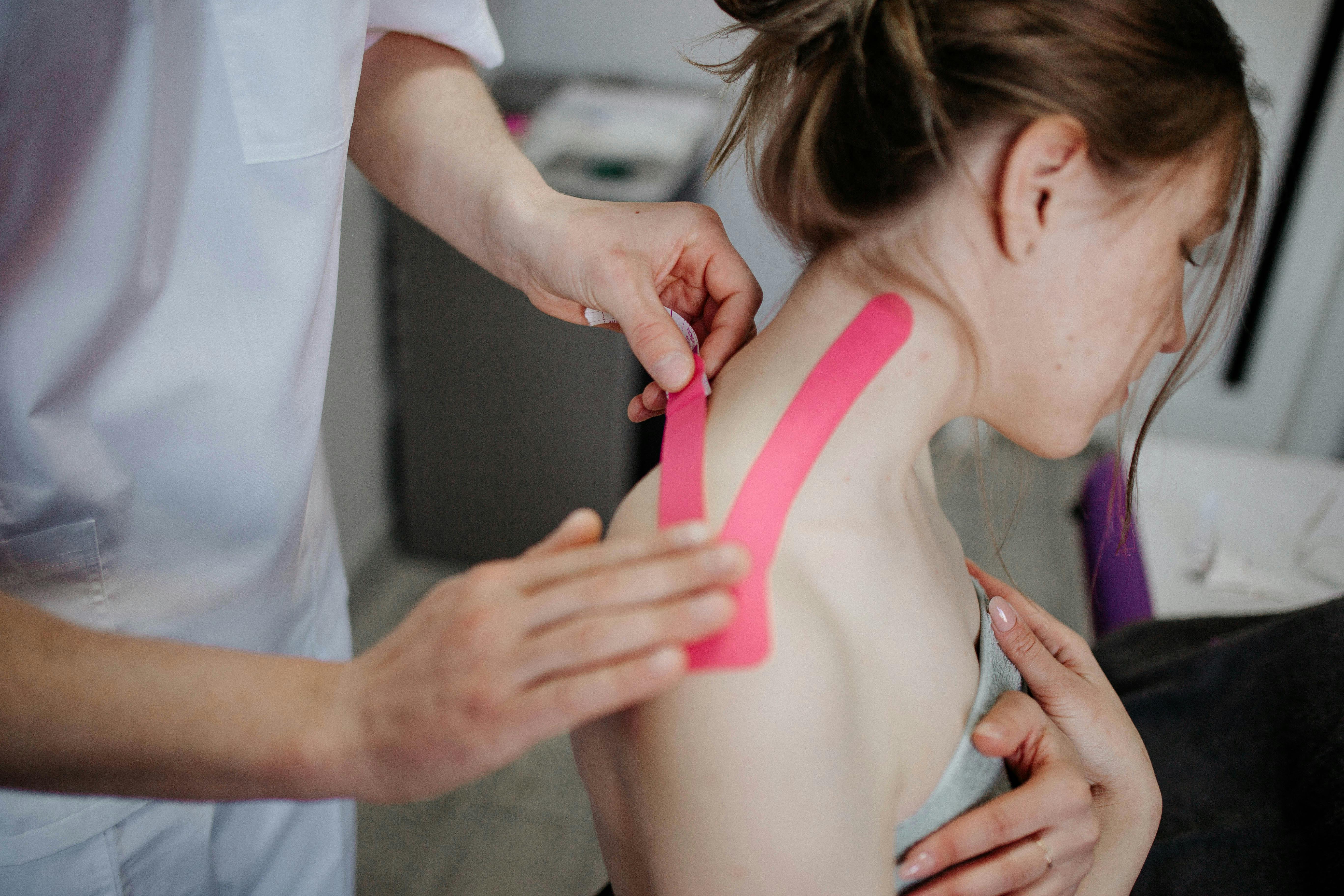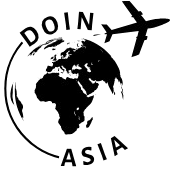Thailand Medical Tourism: Top Strategies for High-Quality Wellness Care
Funny thing is, when people think of Thailand, there’s this immediate mental flash of sandy beaches, phenomenal street food, blazing neon city life. But—here’s what’s wild—over the past decade, Thailand has quietly become a world-class destination for medical tourism, racking up accolades for both its advanced healthcare and holistic wellness services. I remember sitting in a Bangkok hospital lounge in 2019, amazed by the blend of spa-like serenity and clinical professionalism. And I wasn’t the only foreigner in the waiting room. Turns out, at that time, Thailand was welcoming more than three million international patients each year1.
Ever wonder why someone from London, Sydney, or even Dubai would travel 7,000km just for a medical procedure—or even just a serious wellness tune-up? The answer is: quality, affordability, and (surprisingly) experiences that feel truly elevated. But wait. It’s not always about saving money. Increasingly, it’s about finding the best care and a bit of adventure along the way (and, in my experience, sometimes it’s about escaping waitlists). This brings up another point: how did Thailand actually get so good at this?
Why Thailand? The Medical Tourism Appeal
Let me paint a picture. Last January, a colleague flew from Canada to Phuket for knee surgery—a procedure that would’ve cost four times as much at home, not to mention the six-month wait. Not only did she get top-grade orthopedic care, but (as she puts it) she spent her recovery in a resort overlooking the Andaman Sea: “I felt looked after—in ways that go beyond the medical side,” she remarked2. It’s this mix of clinical excellence, holistic wellness options, and hospitable Thai culture that makes Thailand more than just a place to get patched up.
But here’s where it gets interesting. Thailand didn’t stumble into this reputation by accident. There’s a clear, deliberate strategy behind it—a combination of government incentives, world-class private hospitals, a robust wellness sector, international accreditations, and a savvy approach to digital marketing. The result? According to the Medical Tourism Index, Thailand consistently ranks in the global top five for healthcare value, experience, and infrastructure3.
Thailand is home to over 60 medical facilities accredited by the Joint Commission International (JCI)—the global gold standard for hospital quality. That’s more than any other Southeast Asian country, and it rivals many European nations in sheer medical accreditation volume4.
Key Medical & Wellness Services
Let’s get concrete. What are people actually traveling to Thailand for? In my experience—and confirmed by the numbers5—the demand clusters around:
- Elective surgeries (orthopedics, cosmetic procedures, dental work)
- Advanced diagnostics (cancer screening, genetic testing)
- Fertility treatments (IVF, egg freezing, surrogacy support)
- Integrative wellness (spa therapies, Thai massage, detox programs)
- Rehabilitation (sports injury, long-term restorative care)
- Executive health checks (annual checkup ‘packages’ mixing medical and wellness)
Not everything is about cutting-edge technology. Sometimes, it’s that blend of traditional Thai practices—herbal medicine, mindfulness, and spa treatments—that draws people in. I can’t count the number of friends who returned home raving more about their detox program or pain-free massage than about the high-tech imaging machine (though, to be fair, those get their own share of humblebrags).
Featured Snippet: Thailand Medical Tourism Quick Facts
| Service Category | Typical Cost (USD) | Wait Time | Patient Satisfaction* |
|---|---|---|---|
| Knee Replacement | $8,000–$16,000 | 2–4 weeks | 92% |
| Cosmetic Surgery | $1,800–$6,500 | 1–3 weeks | 89% |
| IVF Cycle | $7,000–$11,000 | 2–5 weeks | 85% |
| Detox/Wellness Retreat | $900–$2,500 | Immediate | 97% |
(Figures reflect averages as of 2024; patient satisfaction measured across published survey results6.)
What really strikes me is the range. The high-tech stuff sits right alongside traditional, holistic packages you wouldn’t find in many Western healthcare systems. That, and the fact that clinics are genuinely staffed to handle such diverse global needs. More on that in just a bit.
Innovative Strategies: How Thailand Leads
What makes Thailand unique—and, in my opinion, consistently ahead of the curve—is how the country approaches medical tourism strategically. Let me step back for a moment. The Thai government initiated a national plan nearly two decades ago to position the country as Asia’s medical hub7. This wasn’t just talk. Investment poured into modernizing private hospitals, recruiting internationally trained doctors, and building direct partnerships with travel operators. Speaking of which, it always amazes me how seamless the airport-to-hospital experience is: private ambulances, translation services, six-star patient coordinators. I used to think it was just luck, but it’s clearly by design.
Some critics still question, “Can a tourist destination deliver real clinical quality?” Short answer: Yes—if you look at metrics like infection rates, readmission statistics, and accreditation standards. According to JCI audits, Thai hospitals consistently match or surpass those in Europe or Australia8. Naturally, things aren’t perfect everywhere, and one should do their due diligence. But, generally speaking, Thailand delivers.
Pioneering Practices Worth Knowing
- Integrated Patient Services: Hospitals offer package deals including accommodation, airport pickup, and personal interpreters. This is a big deal, especially for less mobile patients or those nervous about language barriers.
- Digital Health Platforms: I’ll be honest—I used to be skeptical about virtual consultations. But in Thailand, telemedicine isn’t just a buzzword. Patients get pre-care, follow-up, and even post-discharge support online, reducing return visits and improving outcomes9.
- Joint Wellness Packages: The lines between medical and wellness are deliberate here. It’s normal to see a surgery package bundled with spa days, yoga classes, and nutrition consults—a holistic approach I can genuinely get behind.
- Targeted Marketing: Ads run in top global magazines. Thai clinics sponsor medical tourism expos in Europe, the Middle East, and Australia. Some even work directly with insurance providers to streamline claims for foreigners.
- Language Access: I used Google Translate once; never again. Major hospitals staff multi-lingual coordinators who are fluent in English, Arabic, Mandarin, Japanese, and even Russian—a detail that’s easy to overlook but absolutely critical10.
Planning Your Trip: Costs, Timing & Key Tips
If you’re asking yourself, “How do I actually organize a trip for healthcare in Thailand?”—well, it’s a process worth breaking down. Let me clarify something from the start: there’s no one-size-fits-all playbook. Costs, timing, and prep can vary wildly depending on the procedure, your home country, and the time of year. Interestingly enough, the best seasons for travel usually align with the country’s ‘cool’ and ‘dry’ months—between November and February. This isn’t just for comfort; it also affects surgery recovery due to lower humidity and fewer infectious risks11.
Here’s a quick breakdown (based on my experience and surveys from medical tour operators):
- Initial Consults: Usually handled virtually, meaning you save the long-haul flight for later.
- Paperwork & Visas: Many clinics assist with medical visas—a lifesaver if you’re unfamiliar with the bureaucracy.
- Lodging & Transport: Expect bundled packages for hotels and ground transit.
- Pre-op & Post-op Planning: Most top hospitals require you to arrive three days before surgery for preparatory checks; factoring a week post-discharge for recovery is ideal.
- Insurance: Some international insurers cover Thai procedures, but many don’t; this is a topic worth a deeper look a bit later.
Sound familiar? You’re probably thinking, “How do the costs actually stack up compared to home?” Well, I did my own comparison:
| Procedure | Avg. Thai Cost | US Cost | UK Cost |
|---|---|---|---|
| Hip Replacement | $12,000 | $40,000 | $16,500 |
| Rhinoplasty | $3,500 | $6,000 | $5,900 |
| IVF (per cycle) | $8,000 | $14,000 | $11,000 |
(Data sourced from hospital billing records and official reports, 2023-202412.)
Expert Quote
“In Thailand, the patient’s journey isn’t just about medical excellence. It’s about dignity, comfort, and cultural sensitivity—values too often forgotten in Western healthcare.”
That quote resonates. Over the years, I’ve seen first-hand how small touches—a smiling greeting, a patient liaison who remembers your name—can transform clinical care into a truly healing experience. I actually need to revise my earlier point: it’s not just the technology or price. It’s how Thailand makes you feel during the entire care journey.

Patient Experiences: Real Stories & Lessons Learned
I’ll be honest—when I first explored the world of medical tourism, I was mostly intrigued by the numbers and headlines. But it’s the real stories that stick with you. Take Mark from Melbourne: he traveled for dental implants, expecting just “decent dentistry.” What blew his mind was the after-the-fact dental wellness program, which included Thai herbal therapy and personalized nutrition plans. “You leave feeling like your whole health—not just your teeth—was cared for,” he told me in a post-trip call.
Another anecdote that’s stuck with me is Jane’s journey (from London) for IV fertility treatments. She cited the seamless transition from airport to clinic, dedicated interpreters, and—remarkably—the therapist who visited her hotel room daily to help with stress management. “It’s like your medical treatment upgrades your whole vacation,” she said. These kinds of stories aren’t rare14.
Thailand’s international patient arrivals in 2023 topped 3.2 million, with travelers predominantly from China, the United Arab Emirates, Australia, UK, and the USA. This patient diversity drives both clinical standards and cultural fluency15.
Lessons Learned: Making the Most of Your Medical Journey
- Vet Your Clinic: JCI accreditation is a must. Always check credentials before booking anything. I learned this after realizing one of my recommendations missed the mark on post-op care.
- Compare Packages Directly: Don’t be wowed by “all-inclusives” without reading the fine print (sometimes airport pickup means a third-party shuttle, not a dedicated hospital car).
- Confirm Language Support: Double-check the interpreter services before travel, especially for advanced or specialized treatments.
- Plan Recovery Carefully: Thai weather and environment can aid healing, but don’t rush home; I’ve seen too many cases where patients cut their stay short, then struggle with jetlag and complications back home.
Let me think about this—so much of Thai medical tourism’s success lies in its integration with everyday travel planning. Hospitals work hand-in-glove with resorts and airlines. It’s commonplace to find hotel staff trained in basic medical assistance or to see clinics operating out of resort properties along the coastline. And—actually, this surprised me—a number of five-star wellness retreats have on-site medical staff certified in both Western and Thai medicine.
Practical Considerations: Safety, Insurance, & Post-Care
Some of the most common questions I get revolve around safety and insurance. Is Thai medicine really safe? What happens if something goes wrong? Having worked in health policy, I can tell you: Thailand’s medical regulatory landscape is robust but not perfect. Oversight by the Thai Ministry of Public Health includes regular audits, accreditation reviews, and emergency response protocols16. However, smaller clinics sometimes lack the same rigor, so due diligence is non-negotiable.
Insurance gets tricky. Many global insurers don’t cover international elective procedures. Even so, Thailand has increasingly partnered with travel insurers for specific packages. I go back and forth on this, but every patient should request written confirmation of coverage and clarify liability. (One of my clients lost reimbursement for an “excluded” consultation.)
Post-care is evolving, too. Major hospitals now have telemedicine platforms for remote monitoring—patients abroad get virtual checkups, medication reminders, and even mental health support via app-based chat. Frankly, this is GAME-CHANGING for post-op recovery. Three years ago, options like this didn’t exist anywhere in Asia.
Expert Quote
“International patients should assess both clinical standards and the patient journey, as recovery depends not just on technical care but also on environmental and cultural support.”
I still see patients surprised by just how much non-medical support matters. From therapeutic Thai cuisine to mindfulness coaching, it’s the human, cultural side of recovery that often makes the biggest difference.
Summary & Next Steps: Making Thai Medical Tourism Work for You
What really strikes me, looking back across years of research and interviews, is Thailand’s deliberate fusion of world-class medical practices with genuine hospitality and cultural depth. There’s work to be done—room for improvement with regulatory clarity, insurance processes and the occasional “lost in translation” challenge. Still, Thailand’s approach is fundamentally patient-centric and experiential.
If you (or someone close to you) is considering medical tourism in Thailand, here are my top action steps:
- Start planning early: Book consults 3-4 months in advance to lock in procedure dates and travel deals.
- Build a “wellness sandwich”: Surround clinical care with authentic local wellness—for example, post-surgery Thai massage, herbal meals, spa days, and guided cultural excursions.
- Check credentials, not just reviews: Rely more on JCI and government accreditation than on anonymous internet chatter.
- Budget beyond surgery: Account for flight, stay, insurance, and daily living, plus post-op costs if recovery requires longer residence.
Featured Snippet: Thailand’s Competitive Advantages in Medical Tourism
| Advantage | Detail | Industry Comparison |
|---|---|---|
| Cost Efficiency | Up to 70% lower than US/UK rates | Asia & Europe |
| Accredited Hospitals | 60+ JCI-accredited facilities | Second only to Singapore in region |
| Wellness Integration | Spa, mindfulness, therapy available with medical care | Leading globally |
| Cultural Hospitality | Staff trained in multi-lingual, patient-centered care | Unique Thai approach |
References & Further Reading
Referenced Sources



